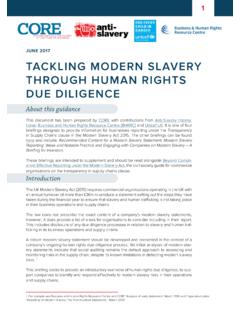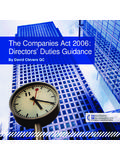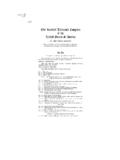Transcription of ENGAGING WITH COMPANIES ON MODERN …
1 ENGAGING with COMPANIES ON MODERN slavery A BREIFING FOR INVESTORSA bout this guidanceThis document has been prepared by CORE with contributions from Anti- slavery In-ternational, Business and Human Rights Resource Centre (BHRRC) and Unicef UK. It is one of four briefings designed to provide information for businesses reporting under the Transparency in Supply Chains clause in the MODERN slavery Act 2015. The other briefings can be found here and include: Recommended Content for a MODERN Slav-ery Statement; MODERN slavery Reporting: Weak and Notable Practice; and Tackling MODERN slavery through Human Rights Due Diligence.
2 These briefings are intended to supplement and should be read alongside Beyond Compliance: Effective Report-ing under the MODERN slavery Act, the civil society guide for commercial organisations on the transparency in supply chains clause. This briefing supports investors to engage with COMPANIES on their actions to tackle MODERN slavery and human trafficking in their operations and supply chains. It pro-vides investors with : A rationale for engagement: MODERN slavery risks are pervasive in business supply chains and have the potential to impact on reputation and share price.
3 Criteria for corporate engagement: which COMPANIES to prioritise? Questions to initiate dialogue: ENGAGING with COMPANIES that have only just started to consider their exposure to MODERN slavery , as well as questions for COMPANIES that are more advanced in addressing this issue. Guidance on evaluating COMPANIES responses: fundamentals for all compa nies on understanding MODERN slavery risk. Ideas for further action: including considering MODERN slavery risks when constructing investment portfolios, through to supporting collaborations and ENGAGING policy makers on the issues.
4 1 JUNE 2017 Why Engage? MODERN slavery , including forced labour and child labour is a grave violation of hu-man rights. The clandestine nature of slavery and related practices makes it difficult to determine how widespread the problem is. The International Labour Organisation estimates 21 million people are in some form of forced labour globally. MODERN slavery is pervasive in corporate supply chains in all regions of the world. According to the Department of Labor, 139 commodities and goods ranging from timber to electronics to flowers are made using forced labour or child labour.
5 Investors have an important role in influencing corporate action on MODERN slavery . A report by the Ethical Trading Initiative found that investor interest is increasingly a driv-er for COMPANIES to address MODERN slavery . Of over 70 leading brands and retailers that took part in the research, 25% now see investor concerns as a strong motivator, an increase from zero in slavery poses a material business risk to COMPANIES and ultimately investors. Not only can the discovery of MODERN slavery pose a reputational risk and affect share price, there is a further risk of costly legal action and in some cases large compensa-tion awards to victims.
6 In 2015 marine-services company Signal International LLC had to pay $ 20 million in compensation to former employees who were victims of human trafficking. The company later filed for bankruptcy. Signal was 47% owned by two major public pension funds, the Teachers Retirement System of Alabama and the Employees Retirement System of Alabama, who lost approximately $70 mil-lion. For an overview of recent lawsuits against COMPANIES regarding forced labour, see the Business & Human Rights Resource Centre s Corporate Legal Accountability Bulletin on forced labour. Investors can also face direct criticism if things go wrong.
7 Using the OECD National Contact Points, in recent years complaints for insufficient human rights due diligence were brought against two prominent European investment funds that were minority shareholders in the South Korean steel company POSCO. The OECD has since pub-lished guidelines which clarify the responsibilities of investors, and confirm that the OECD Guidelines do apply to minority COMPANIES Should Investors Engage with ?All COMPANIES should take steps to address MODERN slavery risks. Even COMPANIES that are considered low risk should look into their supply chains, for instance to avoid exploitation of workers in cleaning or transportation services.
8 Investors, however, may wish to prioritise engagement with COMPANIES operating in sectors that have been identified by the International Labour Organization as high risk for forced labour and human trafficking: domestic work, agriculture, construction, manufacturing, hospitality, and entertainment. The UK MODERN slavery Act and the California Supply Chains Transparency Act re-quire large COMPANIES to publish statements detailing the steps they have taken to identify and address MODERN slavery in their operations and supply MODERN slavery Act Registry, operated by the Business & Human Rights Resource Centre maintains a comprehensive collection of company statements published un-der the UK MODERN slavery Act.
9 Investors can use this Registry to see which compa-nies have and have not published statements. Section 54 of the UK MODERN slavery Act 1 sets out two specific legal requirements with which COMPANIES must comply. Company statements must be approved by the board (or equivalent) and signed by a director (or equivalent), and there must be a link to the statement on the homepage of the company s website. These requirements are significant: approval by the board demands buy-in from the very top for company-wide action to combat slavery risks; a director s signature cre-ates clear accountability; and access to the statement from the company s homepage demonstrates a clear public stance against MODERN slavery and allows for easier scru-tiny by consumers, investors and others stakeholders.
10 The Business & Human Rights Resource Centre tracks whether the statements on its Registry comply with each of these requirements. At the time of writing, only around 14% of statements meet these two requirements. 31. The transparency in supply chains clause of the Act (Section 54) requires COMPANIES with a turnover of over 36 million with operations in the UK to produce such a statement; estimates on the number of COMPANIES required to publish a statement under the MSA range between 13,000 and 17,000. High risk sectors COMPANIES required to comply with mandatory transparency legislation COMPANIES which do not fulfil the legal requirements under the UK MODERN slavery Act123 KEY GAPS IN REPORTING UNDER UK MODERN slavery ACT Structure of supply chains: The vast majority of statements do not pro-vide details on company supply chains, such as number of suppliers, details of sourced products and commodities, including source location by either country or region.





